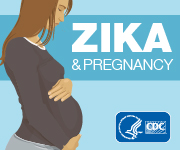Reputation Management

Public health officials work diligently to manage the reputations of their agencies, because they must be respected to maintain credibility and they must maintain credibility for the public to listen to them. If they fail to respond to a public health event, the public will rightfully see them as neglecting their duties and lose trust. If officials are perceived to over-react to a potential emergency, the public may see the agency as alarmist, and not take their future warnings seriously. If public health officials provide wrong or misleading information, the public may come to see them as incompetent or dishonest and simply lose trust.
The ongoing Zika virus epidemic presents a challenge for communicators in protecting agency reputation. In areas where no locally transmitted, mosquito-borne Zika virus is present, it may be premature or inappropriate to launch a major communication campaign. At the same time, news reports about imported cases of Zika may cause some members of the public to think that the virus is spreading in their area. Further confusion may arise because Zika virus can be spread locally through sexual transmission from men who have recently traveled to areas with Zika virus.
Communicators need to be as precise as possible when talking about Zika virus, while keeping the literacy level of their communications appropriate for their target audiences. Confusion will inevitably arise. Communicators need to provide mechanisms to listen to the public and respond to questions and concerns.
Here are some methods of back-and-forth communication:
- Providing a public information line with live operators
- Meeting with communities and interested organizations
- Regularly responding to questions received via Interactive websites and social media accounts
- Meeting with clinical organizations so that clinicians are providing consistent messages to patients and their partners
- Promptly responding to local press reports that contain inaccurate information, using press releases and asking media outlets to publish corrections
Sustained appropriate messaging, combined with back-and-forth communication between public health officials and the public, will enable an agency to steadily correct misinformation, identify needs for new messages, and reassure the public that the agency is working hard to respond appropriately to the outbreak. This will build trust and help maintain the agency’s reputation, which will ultimately enable the agency to work more effectively during an emergency.
For more resources and information on CERC, please see Crisis and Emergency Risk Communication, 2014 Edition or Crisis and Emergency Risk Communication Pandemic Influenza, 2007.
Have you used CERC in your work? To share your CERC stories, e-mail cercrequest@cdc.gov. Your stories may appear in future CERC Corners.
- Page last reviewed: March 23, 2017
- Page last updated: March 23, 2017
- Content source:
- Maintained By:





 ShareCompartir
ShareCompartir